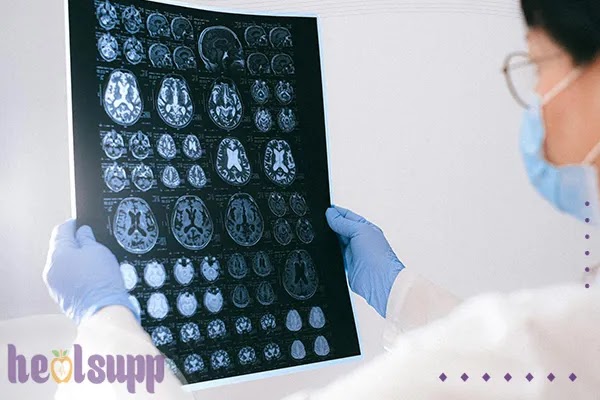Transmission of Alzheimer's Disease Suspected in 5 Individuals Through Prohibited Medical Procedure
Unraveling the Enigma of Alzheimer's Disease: Understanding, Challenges, and Hope for the Future
Introduction:
- Alzheimer's disease, a progressive neurodegenerative disorder, continues to be a significant global health challenge. As we delve into the intricacies of this condition, we uncover the mysteries surrounding its onset, progression, and potential avenues for treatment. This article aims to provide insights into Alzheimer's disease, exploring its impact on individuals and society, the challenges faced in diagnosis and treatment, and the promising avenues of research that offer hope for the future.
Understanding Alzheimer's Disease:
- Alzheimer's disease is a form of dementia characterized by the gradual decline in cognitive functions, including memory, reasoning, and the ability to perform daily activities. The disease is marked by the accumulation of abnormal protein deposits in the brain, known as beta-amyloid plaques and tau tangles, which lead to the destruction of nerve cells and the disruption of communication among brain cells.
Impact on Individuals and Society:
- The impact of Alzheimer's disease extends beyond the affected individuals to their families, caregivers, and society as a whole. Witnessing a loved one's cognitive decline can be emotionally challenging, and the demands of caregiving often take a toll on family members. Furthermore, the economic burden of Alzheimer's disease is substantial, with healthcare costs and lost productivity placing a strain on healthcare systems and economies worldwide.
Challenges in Diagnosis and Treatment:
- One of the primary challenges in managing Alzheimer's disease is the difficulty in early and accurate diagnosis. Symptoms may go unnoticed or be attributed to normal aging, delaying intervention until the disease has progressed significantly. While there are medications available to alleviate symptoms temporarily, there is currently no cure for Alzheimer's disease. The search for effective treatments faces obstacles, including the complex nature of the brain and the intricate mechanisms involved in the disease's progression.
Research and Hope for the Future:
- Despite the challenges, ongoing research provides a glimmer of hope for individuals affected by Alzheimer's disease. Scientists are exploring various avenues, from understanding genetic predispositions to developing innovative therapies targeting the underlying causes of the disease. Advances in neuroimaging and biomarker research aim to enhance early detection, while clinical trials explore novel drugs and interventions.
- Additionally, lifestyle factors such as diet, exercise, and cognitive stimulation have shown promise in reducing the risk of developing Alzheimer's disease. As our understanding of the disease deepens, a multidisciplinary approach involving healthcare professionals, researchers, and policymakers becomes increasingly crucial in the quest for effective prevention and treatment strategies.
- Alzheimer's disease remains a formidable challenge, impacting millions of lives worldwide. Through concerted efforts in research, awareness, and support, there is hope for progress in unraveling the complexities of this debilitating condition. As we continue to explore new avenues for diagnosis and treatment, the ultimate goal is to enhance the quality of life for those affected by Alzheimer's disease and, ultimately, to find a cure.
Potential Transmission of Alzheimer's Disease Identified in Five People via Discontinued Medical Treatment
- A recent study reveals that five individuals with Alzheimer's disease developed the condition due to a medical procedure conducted decades ago. Although the implicated procedure is no longer in use, these findings offer valuable insights into the progression of Alzheimer's and mark the first evidence of the disease being transmitted to living people through such means.
- Researchers from University College London (UCL) and University College London Hospitals NHS Foundation Trust (UCLH) examined eight cases of patients in the UK who had been treated with human growth hormone derived from cadavers (c-hGH) between 1959 and 1985. This treatment, administered mostly during childhood to address various causes of short stature, was globally discontinued after recipients were reported to be infected with prions, leading to Creutzfeldt-Jakob disease (CJD).
- Prions are misfolded proteins that can harm the brain by inducing nearby proteins to misfold. Typically, prion diseases arise sporadically, but in some cases, they result from medical procedures, known as "iatrogenic" transmission. The risk of iatrogenic CJD became evident in the mid-1980s, prompting the cessation of c-hGH use in medical procedures.
- Post-mortem analyses at the National Prion Clinic at UCLH revealed that individuals who died of CJD also displayed amyloid-beta pathology, a characteristic of Alzheimer's disease. However, the symptoms of CJD masked any signs of Alzheimer's during their lives.
- The recent study focused on eight patients who did not develop CJD after c-hGH treatment. Five of them exhibited symptoms consistent with Alzheimer's-related dementia between 38 and 55 years old, progressing over time. Genetic testing ruled out the inherited type of Alzheimer's, leading the researchers to conclude that amyloid-beta proteins were transmitted during c-hGH treatment, causing Alzheimer's-like pathology in midlife.
- Previous research with animal models supported this theory, suggesting that amyloid-beta could act like a prion, leading to harmful protein deposits in the brain. However, it's crucial to note that this does not imply Alzheimer's is contagious. The transmission likely requires direct contact with the brain or the presence of pathogenic proteins in the bloodstream.
- Professor John Collinge, the lead author of the study, emphasized that there is no suggestion that Alzheimer's can be transmitted in daily life or routine medical care. Instead, the findings provide additional evidence that Alzheimer's may progress similarly to CJD in some cases. Although true iatrogenic cases of Alzheimer's are expected to be rare, researchers recommend reevaluating medical procedures for potential transmission risks. Ultimately, these insights may aid in understanding Alzheimer's progression and developing new therapies.









0 Comments